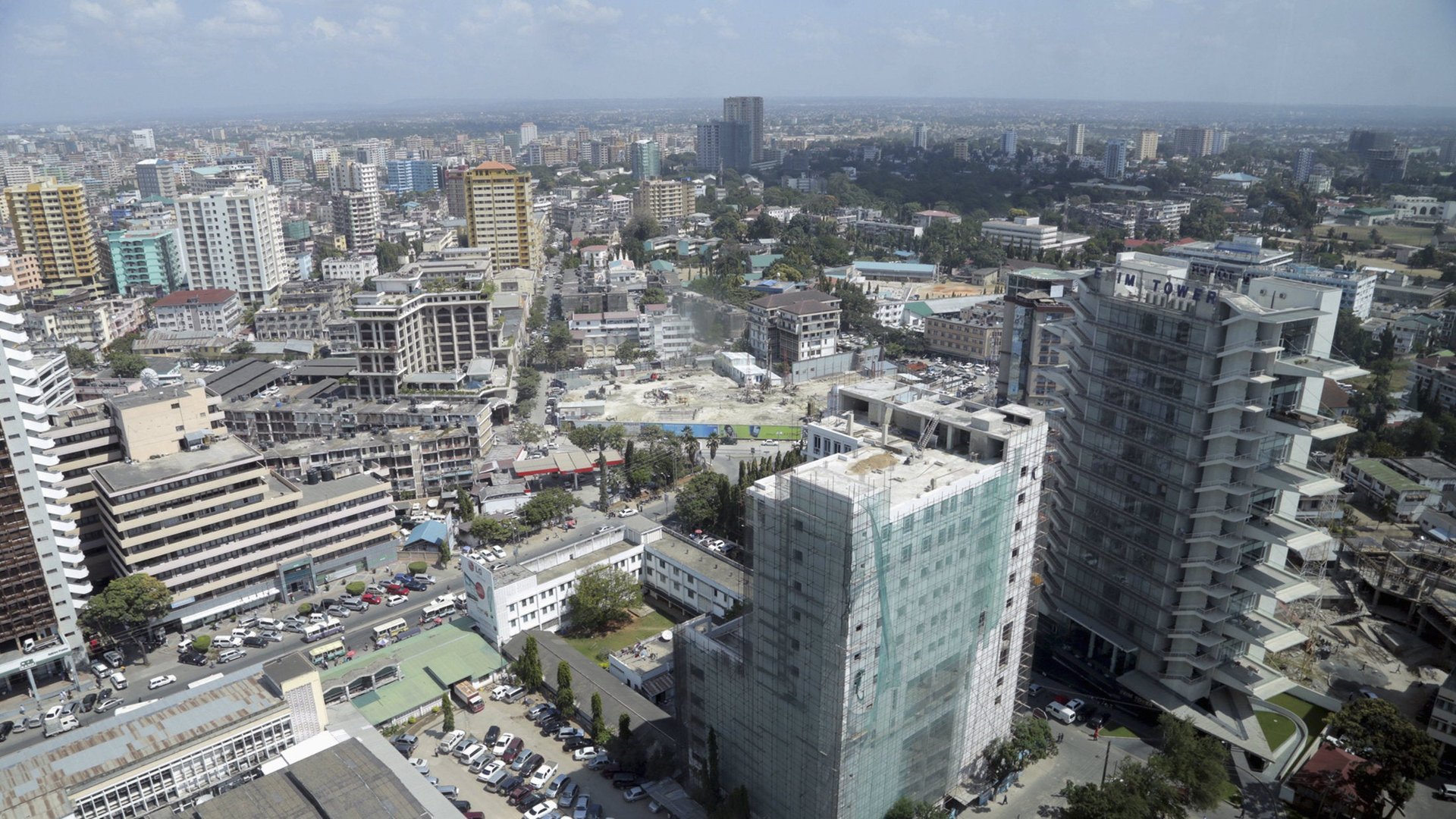The US is sanctioning Tanzania’s largest commercial bank over suspected ties to money laundering
FBME, one of Tanzania’s largest commercial banks, has been cut off from accessing the US financial system on suspicions that the bank has facilitated money laundering, terrorist financing, and organized crime.


FBME, one of Tanzania’s largest commercial banks, has been cut off from accessing the US financial system on suspicions that the bank has facilitated money laundering, terrorist financing, and organized crime.
The action finalizes a 2014 ruling from the US Treasury Department’s Financial Crimes Enforcement Network (FinCEN) naming FBME “a foreign financial institution of primary money laundering concern” under the Patriot Act.
“[I]t demonstrates that the United States will not allow a compromised foreign bank to send dirty funds through the U.S. financial system,” FinCEN director Jennifer Shasky Calvery said in a statement.
The agency argued that the bank has shown a lax approach to its anti-money-laundering (AML) controls, thereby opening itself up to being used by criminal elements for illegal activities, including terrorism.
When these concerns first surfaced, FBME denied the allegations and argued that an audit found the bank “in compliance with applicable AML rules of the Central Bank of Cyprus and the European Union.” Despite this insistence, the central bank of Cyprus took over operations of the bank last year upon FinCEN’s initial ruling. (Though headquartered in Tanzania, FBME conducts the bulk of its business through Cyprus.) The Bank of Tanzania, meanwhile, took over the management of FBME’s four branches in Tanzania and put them under the supervision of Lawrence Mafuru, who is also the ministry of finance’s treasury registrar. Mafuru could not be reached to comment on the US regulatory action.
As a result of the ruling, American financial institutions are now barred from doing business with FBME or trading on its behalf. Institutions in other countries might not face the same restrictions, but effectively they have been put on notice by FinCEN of the risks involved in dealing with FBME.
There are implications for Tanzania as well. As recently as a year ago, Tanzania managed to get itself removed from a list of countries considered to be at high risk for money-laundering activity. This latest development could raise concerns as to whether east Africa’s second-largest economy is doing enough to tackle the problem. A return to the list could compromise trade inflows and foreign investment.
In 2013, a much-needed financial bailout for Cyprus by the European Union got delayed due to money laundering concerns (paywall) centered around activities by FBME. At the time, the lender said that it was ”fully applying” AML regulations in both Tanzania and Cyprus.